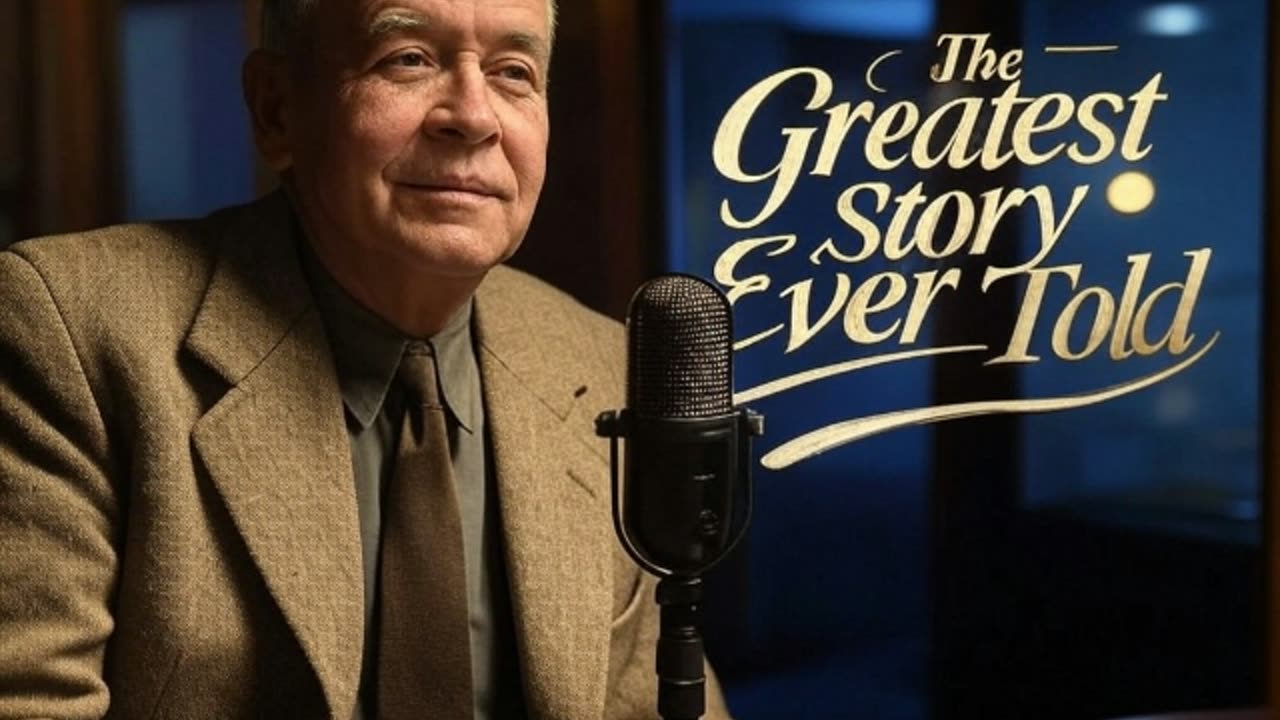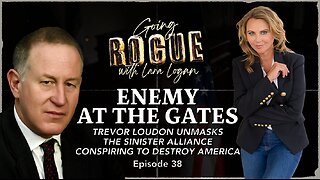Premium Only Content

The Greatest Story Ever Told - "Parable of the Good Samaritan" (January 26, 1947)
The premiere episode of The Greatest Story Ever Told, a religious radio drama on ABC, dramatizes the biblical Parable of the Good Samaritan (Luke 10:25–37). Jesus tells the story of a traveler attacked by robbers on the road from Jerusalem to Jericho, left half-dead. A priest and a Levite pass by without helping, but a Samaritan, despised by Jews, stops to care for the man, taking him to an inn and paying for his recovery. The episode emphasizes Jesus’ teaching to “love your neighbor as yourself,” using direct biblical dialogue for Jesus’ words, as was the series’ practice. With a full orchestra and 16-voice chorus, the production creates a reverent tone, focusing on compassion and moral duty without denominational bias. Sponsored by Goodyear, the episode avoids commercials, maintaining a solemn atmosphere.
Actors and Roles
Specific casting for this episode is not well-documented, as was common for radio dramas of the era, and The Greatest Story Ever Told often used a rotating ensemble of skilled but uncredited actors. Likely performers include:
Unknown Actor as Jesus Christ. The series used a consistent, dignified voice for Jesus, possibly a seasoned radio actor like John Lund or Les Tremayne, though no specific name is confirmed for this episode.
Supporting Roles (e.g., the Samaritan, the traveler, the priest, the Levite, or the lawyer questioning Jesus) were likely voiced by NBC/ABC stock actors, such as Joseph Granby, Eleanor Audley, or Paul Frees, who were active in radio dramas. The series prioritized anonymity to keep focus on the story, so individual credits are rare.
Narrator or Chorus (if used) may have been handled by a choral group or a single announcer, possibly Westbrook Van Voorhis, known for his authoritative radio voice, though this is speculative.
National News in the USA: Week of January 26, 1947
Post-War Economic Adjustments: The U.S. was transitioning from a wartime to a peacetime economy. Inflation was a major concern, with prices rising sharply (up 18% in 1946). News covered debates over price controls, which President Harry S. Truman had recently lifted, sparking labor strikes in industries like steel and coal.
Labor Strikes: The United Auto Workers and other unions were striking against major corporations, demanding higher wages to match inflation. These disputes, particularly in Detroit, dominated headlines, with fears of economic disruption.
Cold War Tensions: The U.S. and Soviet Union were in early Cold War friction. News reported on U.S. aid to Greece and Turkey to counter Soviet influence, a precursor to the Truman Doctrine (announced March 1947).
Veterans’ Issues: Returning World War II veterans faced housing shortages and job competition. The GI Bill was in focus, with stories about veterans’ education and home loan programs.
-
 1:30:58
1:30:58
Lara Logan
2 days agoENEMY AT THE GATES: Trevor Loudon Unmasks the Sinister Alliance Working to Destroy America | Ep 38
5.21K24 -
 LIVE
LIVE
TheItalianCEO
47 minutes agoBest VIDEO GAMES on a Sunday
22 watching -
 17:14
17:14
Mrgunsngear
18 hours ago $4.19 earnedDerya DY9 Review - The Best Budget Glock Clone?
4.44K12 -
 8:46
8:46
It’s the Final Round
1 day ago💰NFL Week 5 Best Bets🔥Player Prop Picks, Parlays, Predictions FREE Today October 5th
16 -
 LIVE
LIVE
Amish Zaku
1 hour agoMaking Music & Thumbnails - Hanging out with Chat
43 watching -
 LIVE
LIVE
Barneyjack
1 hour agoWarframe LR5/MR35 Gaming, Mayhem & Fashion!! Get in here :) :)
12 watching -
 30:00
30:00
BEK TV
4 days agoGUT HEALTH AND THE POWER OF KIMCHI WITH KIM BRIGHT ON TRENT ON THE LOOS
69.8K6 -
 12:00
12:00
Ken LaCorte: Elephants in Rooms
1 day ago $0.14 earnedWhy Don't Asians Commit Crimes?
68 -
 23:19
23:19
marcushouse
1 day ago $0.76 earnedStarship Flight 11 Is NOT What We Expected… 🚀
4963 -
 22:06
22:06
Jasmin Laine
1 day ago"It’s An EMBARRASSMENT!"–David Eby Gets WRECKED by Former Liberal MP
1.56K19
